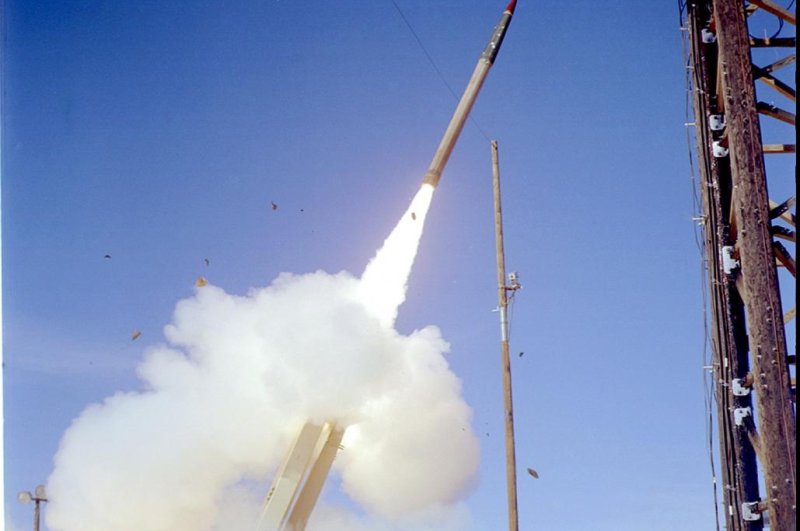SEOUL, March 16 (UPI) -- An anti-ballistic missile system the U.S. military seeks to deploy in South Korea is creating friction between South Korea and China, South Korea's largest neighbor and key trading partner.
The U.S. missile defense system THAAD, or Terminal High Altitude Area Defense system, is opposed by Beijing and Moscow because of radars that extend for 621 miles. The technology could enhance U.S.-South Korea surveillance capacity, and the system can intercept missiles close to their point of origin, the Korea Joongang Daily reported.















